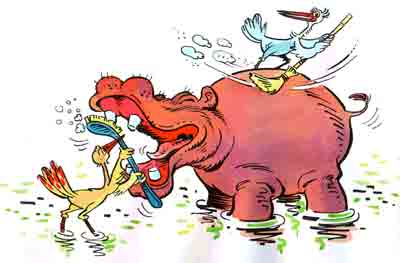Confusing Words Clarified: Group C; Homonyms, Homophones, Homographs, Synonyms, Polysemes, etc.
(lists of "C" sections that are organized into what for some people are confusing groups of words)
Three words that every student of language should understand are homonyms, synonyms, and antonyms.
Homonyms are words that sound alike, but have different meanings. Synonyms are words that are related in meaning but do not sound alike (begin and commence, for example).
Antonyms are direct opposites in meaning, as hot and cold; white and black.
With homonyms, the following set of to, too, and two are all pronounced exactly alike, but by no means are they interchangeable in writing. To be sure that you choose the correct spelling for any on these, you must know the meanings of all three so you will not make wrong choices with a feeling of vagueness and uncertainty.
Efforts have been made to help you grasp the meanings of these and other words that may be confusing so you can utilize them with greater accuracy in your communication.
Your comments and suggestions are always welcome by writing to: E-mail Contact (just click it for an e-mail form) or by typing, [email protected], as the address in your e-mail heading.
If you have any problems understanding the pronunciation symbols, go to this Pronunciation Chart for clarifications.
Using an old-fashioned stove to burn coal, the exotic dancer whose eyes were outlined with kohl, prepared a fantastic dish of cole, using sesame seeds and oil.
The carpenter used a coarse grade of sandpaper when he started the project.
2. Typical or normal action: In the normal course of events, the students would start their summer vacation in July.
3. One of several parts of a meal: The host served a delicious soup as the first course at the banquet.
4. A topic relating to the study of a particular subject: Grant intends to take a course in archeology at the university the following year.
While taking the course in school, we often had to endure coarse conversation from one guy who was loud in taste, manner, and mouth.
The rough track caused the athletes to complain about the coarse course.
The factories were often trying to coax the cokes to heat the metals more efficiently.
2. To assist or to work with an organization of which an individual may not be a member: The spies agreed to collaborate with the enemy which was planning to invade the islands.
The committee continued to collaborate on their research; in fact, their most recent findings seemed to corroborate their earlier conclusions.
2. An act of providing help to an enemy who has invaded someone's country during a war: Joel was suspected of collaboration with the military forces that were trying to conquer his country.
The fair was organized with the cooperation of local businesses.
2. The actions of someone who is being helpful by doing what is wanted or asked for: Thank you for your cooperation in adding new words to this project.The collaboration of the students on their production of Gilbert and Sullivan was a great example of cooperation in their school.

Melissa went to art college where she studied with a famous artist, re-known for her collage style which incorporated parts of machines, wheels, etc.
2. The essence or central aspect of a thought or an idea: There was a kernel of truth to the story that was being told by the children.
Whenever the military commander wanted a very short snack, he would eat popcorn, which we referred to as "the colonel's kernels".
A traumatic brain injury is the most frequent cause of a coma.
The doctors induced a coma in the patient to allow his body to recover from the severe accident.
The famous author almost fell into a coma when she discovered that her editor inserted a comma in her essay without asking her permission, thus changing the entire meaning of the piece.
2. The fleshy crown of male birds; such as, the common rooster: The comb of the rooster became even redder when he was excited by the noise.
A rooster's unruffled, abroad or at home, because he always carries a comb.
Before Pete could come home, his wife called him by phone and asked him to go to the store to purchase a new comb to be used on the horse. She reminded him that it is called a curry comb.
The committee acted in comity when they met making it a pleasant committee on which to serve.
The king issued a command that the parliament should commend the head of the university for his superior leadership in educational changes.
Kate will commence her speech this afternoon with a few comments about the weather.
2. Falling below generally accepted standards, second rate: Tasha's manners appeared to be common, suggesting that she had not lived in the city for very long.
2. Relating to the common people or the speech of common people: The word vulgar comes from Latin vulgus, "the common people, the multitude, a crowd, the throng" which is why it was placed here as a comparison with the other word in this group.
It is common knowledge that it is considered vulgar to use profane language while yammering on the radio and TV.
During the quiz show, the challenge was to complete the computation of a complicated formula which the contestant did.
The excitement shown on Elsa's face was better than any other form of communication to express her feelings.
2. To change a decision or penalty to something less severe: The court decided to commute the convicted criminal's sentence from the death penalty to 25 years in prison for his crimes.
During Wilbur's daily commute to the office, he uses his computer to compute the answers to specific budget questions.


